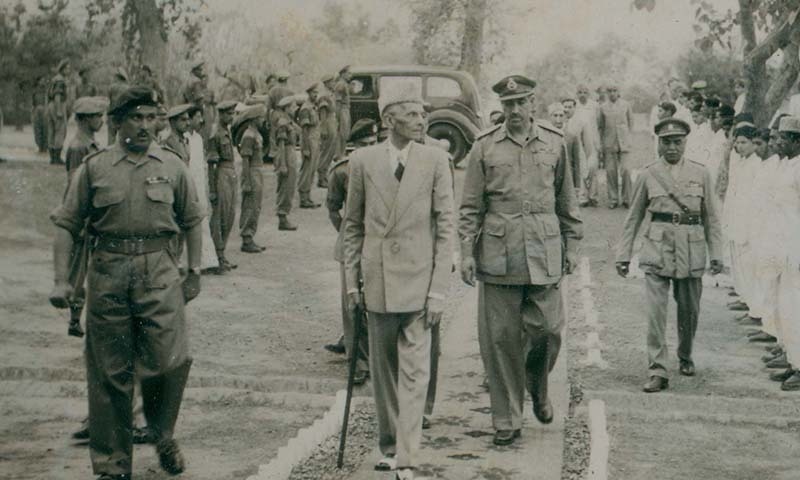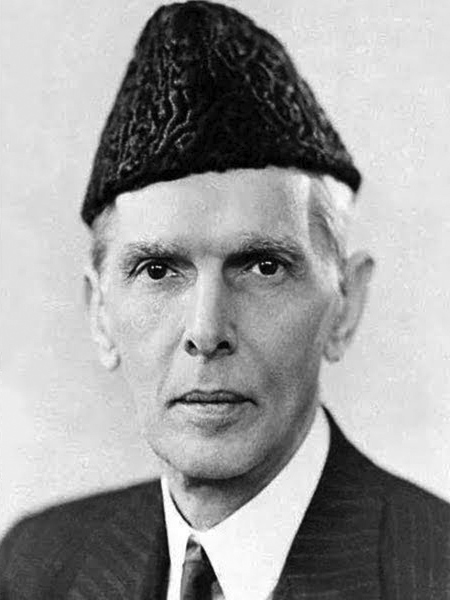“Stand united, work selflessly, perseveringly and in a disciplined manner and I assure you no power on Earth can prevent you from the attainment of a liberated Kashmir and the realization of your just and legitimate rights. Our sympathies are with you in your struggle and I wish your session all success.”
Quaid’s Message to All Jammu and Kashmir Muslim Conference, New Delhi, 26 October, 1946
Quaid e Azam Muhammad Ali Jinnah rose to the pedestal of a leader of the Muslim Ummah. He was a resolute leader, statesman and visionary, possibly one of the most remarkable men of the 20th Century. Sir Agha Khan considered him as “the greatest man I ever met”. A hardened pragmatic realist like Quaid was not just making an allegorical statement when he called Kashmir “the jugular vein of Pakistan”. The very foundations of the beginning of the freedom struggle began from defining of the Objectives of the All India Muslim League in 1906 in the house of Sir Salim Ullah Khan, a Kashmiri dwelling in Dacca, Bengal. The Quaid believed that there were four pillars of power in the Sub-continent namely the British Rule, Congress, Muslim League and the Native states comprising almost one fourth of the population of India. The philosopher poet and visionary of Pakistan, a Kashmiri himself, Allama Iqbal presented the idea of Pakistan in 1930 and believed that the dream of an Independent Muslim homeland in the sub continent would be incomplete without an independent State of Kashmir. The All India States Muslim League looked after the affairs of the Native States guided and supported by the leadership of All India Muslim League. Allama Iqbal enticed Muslims to observe 14th August 1934 as Kashmir Day.
There are stores of records showing four visits of Quaid e Azam to Kashmir. The first one was in 1926 which was although a private visit where the Quaid noted the dismal socioeconomic situation of Muslims and got a resolution passed in the All India Muslim League Working Committee demanding the Maharaja to address the economic, social and especially educational backwardness of Muslims in Kashmir. The Quaid again visited Kashmir in 1936 when Sheikh Abdullah invited him. Tragically the Muslim Conference had come under the influence of Indian National Congress in Kashmir and Quaid rebuked the idea of Sheikh Abdullah that in a Muslim majority state like Kashmir, formation of the Muslim Conference against the National Conference was irrelevant and unnecessary. The Quaid said to the Kashmiris “Oh ye Muslim! Our Allah is one, our Prophet is one, our Quran is one, therefore our Voice must also be one”. Although threatened by Sheikh Abdullah and others the Great leader remained in Kashmir for almost a month and attended meetings with leaders and workers, students, lawyers, common people and journalists which had a great impact on the politics and future of Kashmir. As the Two Nation theory gained momentum Abdullah desperately started the Quit Kashmir movement from which the Muslim League abstained. Abdullah was arrested. Nehru and Gandhi got him released and bribed him on the sole agenda of working for annexation of Kashmir with India. Inspite of delaying the Independence from June to August the arrangements for partition were still incomplete. Mountbatten continued as the Governor General of India while Quaid assumed the office in Pakistan. The British officers continued to serve as India appointed General Rob Lockhart as its Army chief and Pakistan.
appointed General Frank Messervy. Field Marshal Claude Auchinleck was titled the ‘Supreme Commander’, answerable to a newly formed Joint Defence Council of the two dominions.

The treacherous and violent events followed as the Maharaja signed accession to India led by occupation of Kashmir by the Indian Army on 27th October 1947. It was on this day that the Quaid-i-Azam issued orders to the Commander in Chief of Pakistan Army to dispatch troops to Jammu and Srinagar. The great leader took this colossal step in spite of a plethora of socio-political problems and his own deteriorating health which shows his resolve towards Kashmir. It is perhaps the greatest tragedy of Kashmir’s history and of Pakistan’s that this order of the Quaid was not carried out. It is believed that while the British C-in-C avoided the compliance of the orders on one pretext, the cabinet also got cold feet and troops were not dispatched. This was a historic decision and a revolutionary one. Had regular army been sent to Kashmir, the situation would have been entirely different. Unfortunately the conflict that caused thousands of casualties in 1947 remains the apple of discord as India continues to wreak havoc in Kashmir illegally occupying it against United Nations Resolution 47 for an independent Plebiscite. Draconian Laws such as Armed Forces Special Powers Act (AFSPA) and in Jammu and Kashmir and Terrorist and Disruptive Activities (Prevention) Act continue to obliterate civil right.
In a very sad turn of events the fascist regime of BJP government led by the orchestrator of the Gujrat riots in 2002 Narendra Modi abrogated Article 370 of its Constitution for Jammu & Kashmir Jammu and stripped the state of its special status that gave it significant autonomy. Sadly the International Community has stayed silent. The reaction to this atrocious act of India by the Muslim Ummah has been disappointing as well. The OIC representing 53 Muslim majority countries among 57 members showed an equally lukewarm response. OIC representing 1.8 Billion people had invited India as ‘guest of honor’ in March indicating a major departure of the Arab world from its traditional stance and the changing stature of India owing to their massive trade volume and common interests. China, as always, backed Pakistan’s request for UN Security Council to discuss Kashmir which was carried out behind closed doors however even a consensus on a statement was not reached. Pakistan has reiterated that it “will not provoke a conflict but India should not mistake restraint for weakness”
International politics carved by events often paints a picture and tells a simple story. Pakistan was looking at reviving its economy with CPEC especially the development of Gwadar and revitalizing its role in International trade. Saudi Arabia has already vowed to build a US$10 Billion refinery and Qatar investing over US$22 Billion in various projects. The new round of escalation does not seem like a coincidence.
The world watches silently as two Nuclear armed nations are engaged in a lethal face off threatening the very existence of this planet. Sagacity, prudence, wisdom and judiciousness is lacking among world leaders. The threat is imminent and destruction will be irreparable. The death anniversary of the Quaid is reminiscent of the fact that we lack leaders who look beyond boundaries and self interest and look to promote life, liberty and freedom of all communities beyond caste, creed and religion. If we were lucky not to lose Quaid so early we would never have witnessed the Kashmir dispute prolong the agony of Kashmir’s for so long and threaten the existence of the World.
Being an eternal optimist I still believe that “all is not lost”. The United States needs Pakistan for its respectful exit from Afghanistan. The recent talks between the US and Afghan leaders was managed by Pakistan stamping its role in the region. China on the other hand beyond its long standing friendship bonds now has tremendous financial interests in Pakistan and would not allow any misadventure by India. Last but not the least the war hardened Pakistan Army promises enough bite to deter India.
On the death anniversary of Quaid e Azam we pay homage to our great leader. Owing to his legacy we must promise to forget our petty differences and stand united against a common enemy that is knocking at our door and wishes to test our resolve. We must believe in ourselves, trust our abilities, sharpen our skills and ensure that we make ourselves useful members of society, work hard and contribute positively towards a stronger and prosperous Pakistan.




